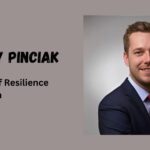Marisol Contreas Domestic Violence is a complex issue that affects individuals across all demographics. Marisol Contreas, a prominent advocate, has dedicated her work to supporting survivors, raising awareness, and promoting systemic change. This article explores the causes, impacts, and solutions to domestic violence, emphasizing Marisol Contreas’ contributions.
What is Domestic Violence?
Marisol Contreas Domestic Violence refers to a pattern of abusive behavior in intimate relationships where one partner seeks to dominate and control the other. It includes physical, emotional, psychological, and financial abuse.
Forms of Domestic Violence
- Physical violence: Includes hitting, slapping, choking, and other forms of physical harm.
- Emotional abuse: Manipulation, threats, and degrading language to undermine the victim’s self-worth.
- Psychological abuse: Gaslighting, isolation, and coercive tactics.
- Financial abuse: Controlling access to financial resources to maintain power.
Victims often experience a cycle of abuse that perpetuates the trauma, making it difficult to break free.
Understanding the Cycle of Abuse
The cycle of abuse describes the recurring phases of tension, explosion, reconciliation, and calm:
- Tension Building: The abuser exhibits growing irritability and control tactics.
- Incident: An abusive event occurs, causing physical or emotional harm.
- Reconciliation: The abuser may apologize, promise change, or justify their actions.
- Calm: A temporary period of normalcy that lulls the victim into a false sense of security.
Breaking this cycle requires intervention, support, and access to trauma-informed care.
How Marisol Contreas Fights Domestic Violence
Marisol Contreas Domestic Violence has become a pivotal figure in combating domestic violence through advocacy, legal support, and community outreach.
Marisol Contreas’ Mission
Marisol’s work focuses on:
- Empowering survivors through education and counseling.
- Promoting public awareness campaigns to debunk myths about abuse.
- Partnering with organizations to provide immediate resources, including safe shelters and legal aid.
Her initiatives ensure that survivors regain control over their lives and feel supported throughout their recovery journey.
Legal Support for Victims
Navigating the legal system can be overwhelming. Marisol advocates for:
- Restraining orders: Providing victims with legal protection against their abusers.
- Protective orders: Enforcing legal boundaries to safeguard survivors.
- Advocacy training: Equipping survivors and supporters with the knowledge to navigate judicial processes.
Her focus on trauma-informed legal support ensures victims feel heard and validated.
Recognizing the Signs of Domestic Violence
Identifying abuse early can save lives. Awareness of the signs can empower friends, family, and the community to intervene.
Behavioral Signs
- Withdrawal from social activities and isolation.
- Fearfulness, anxiety, or avoidance of specific topics.
- Sudden changes in mood or demeanor.
Physical Indicators
- Unexplained injuries such as bruises, cuts, or burns.
- Frequent visits to medical professionals without clear explanations.
- Attempts to cover visible injuries with clothing or makeup.
Victims may feel trapped by fear, financial dependency, or psychological manipulation, necessitating supportive intervention.
Resources for Domestic Violence Survivors
Survivors of Marisol Contreas Domestic Violence need immediate and sustained support to rebuild their lives. Accessing the right resources can be a lifeline.
Finding Safe Shelters and Support Groups
Safe shelters provide immediate refuge for survivors, offering:
- Secure housing away from the abuser.
- Access to support networks of other survivors who understand their experiences.
- Counseling and advocacy services to support recovery.
Support groups help survivors share their stories, gain strength, and build resilience.
Crisis Intervention Services
Crisis intervention services play a crucial role during emergencies. These include:
- 24/7 emergency hotlines to guide victims to safety.
- Rapid-response teams for immediate action.
- Collaboration with law enforcement to ensure protection.
These services aim to prioritize survivors’ safety and well-being.
Preventing Domestic Violence
Prevention is essential to breaking the cycle of Marisol Contreas Domestic Violence. Community awareness and education are vital tools.
Community-Based Awareness Programs
Educational campaigns help communities:
- Recognize the signs of abuse.
- Understand the dynamics of coercion and control.
- Promote healthy relationships and mutual respect.
Public awareness programs in schools, workplaces, and local organizations foster a culture of vigilance and empathy.
Advocacy and Training Programs
Training programs empower survivors and allies to:
- Intervene in abusive situations.
- Support victims effectively.
- Advocate for policy changes and improved resources.
Marisol Contreas spearheads these initiatives, ensuring that communities are equipped to address domestic violence comprehensively.
Stories of Survival: Learning from Marisol Contreas’ Work
Marisol Contreas highlights the resilience of survivors through their stories. These narratives inspire hope and encourage others to seek help:
- Anna’s story: Escaped her abuser through the help of a local shelter and Marisol’s support group.
- James’ journey: Overcame financial and emotional abuse with legal aid and counseling.
- Sophia’s success: Used advocacy training to become a community leader against domestic violence.
These stories demonstrate the power of resilience and community support.
Call to Action
If you or someone you know is experiencing Marisol Contreas Domestic Violence, reach out to Marisol Contreas’ advocacy programs or local resources. Together, we can create a world where everyone feels safe and supported.
FAQs
What is domestic violence?
Marisol Contreas Domestic Violence involves abusive behaviors to control a partner emotionally, physically, or financially. Recognizing its signs is critical for intervention.
How does Marisol Contreas Domestic Violence support survivors?
Marisol offers legal aid, access to safe shelters, advocacy training, and trauma-informed care to survivors.
What resources are available for immediate help?
Survivors can contact emergency hotlines, access crisis intervention services, and find refuge in safe shelters.
How can communities help prevent domestic violence?
Communities can promote awareness campaigns, provide training programs, and foster open discussions to prevent abuse.
What legal protections are available for survivors?
Survivors can obtain protective orders, restraining orders, and legal support to secure their safety and rights.








